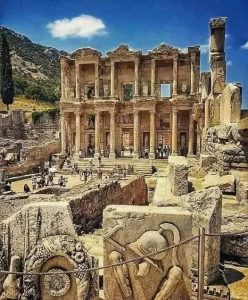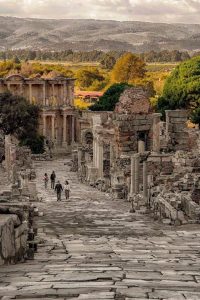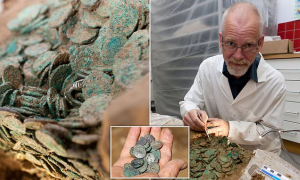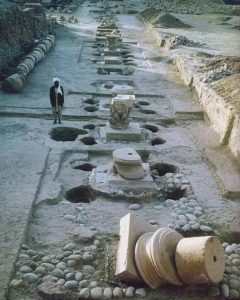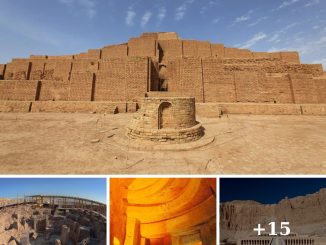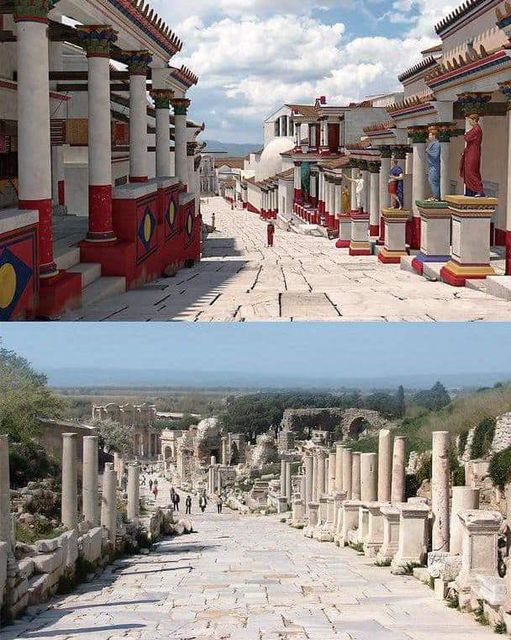
The ancient city once known as Ephesus, located in modern-day Türkiye, stands as a testament to the vibrant and rich history of the region. Through digital reconstruction, we can envision the colorful tapestry of life that once thrived within its walls. Ephesus was not only a bustling port city but also a vital trading center in the Mediterranean, connecting cultures and civilizations through commerce and exchange. As we delve into its storied past, we uncover the fascinating legends and historical significance that have shaped Ephesus into the remarkable archaeological site it is today.
Unveiling the Legends and Origins of Ephesus
According to legend, the origins of Ephesus date back to the 11th-10th century BC when Ionian Prince Androclos is said to have founded the city. However, another intriguing legend suggests that Ephesus was established by the legendary tribe of female warriors known as the Amazons, with the city deriving its name from their queen, Ephesia. These mythical tales add an air of mystique to the city’s origins, intertwining myth and history in the fabric of Ephesus’s identity. Regardless of its exact founding, Ephesus emerged as a prominent and influential city-state in the ancient world, leaving an indelible mark on the annals of history.
Exploring the Resilience of Ephesus Through History
Throughout its storied history, Ephesus endured numerous attacks and changed hands multiple times as conquerors vied for control of its strategic location and abundant resources. Despite facing adversity, the city’s resilience and fortitude allowed it to persevere and thrive, adapting to shifting political landscapes and cultural influences. From Greek and Roman rule to Byzantine and Ottoman dominion, Ephesus remained a beacon of civilization, its legacy enduring through the ages as a testament to the resilience of human endeavor.
Rediscovering the Splendor of Ancient Ephesus Through Digital Reconstruction
The digital reconstruction of ancient Ephesus offers a tantalizing glimpse into the vibrant and dynamic cityscape that once existed within its walls. Through advanced technology and archaeological research, we can visualize the bustling streets, ornate buildings, and colorful marketplaces that defined daily life in Ephesus. From the grandeur of its monumental architecture to the intricacy of its mosaic pavements, the reconstructed city provides a vivid portrayal of Ephesus’s past glory, inviting us to immerse ourselves in its captivating history and cultural heritage.
Conclusion: Reflecting on the Legacy of Ephesus and the Importance of Archaeology
As we reflect on the ancient city once known as Ephesus, we are reminded of the enduring legacy of civilizations past and the invaluable role of archaeology in preserving and interpreting our shared heritage. Ephesus stands as a testament to the ingenuity, creativity, and resilience of human civilization, its ruins serving as a tangible link to the past. Through continued exploration and study, archaeologists uncover new insights into Ephesus’s history, enriching our understanding of the ancient world and inspiring awe and wonder for generations to come. In preserving the legacy of Ephesus, we honor the contributions of those who came before us and ensure that their stories continue to be told for future generations to appreciate and cherish.
